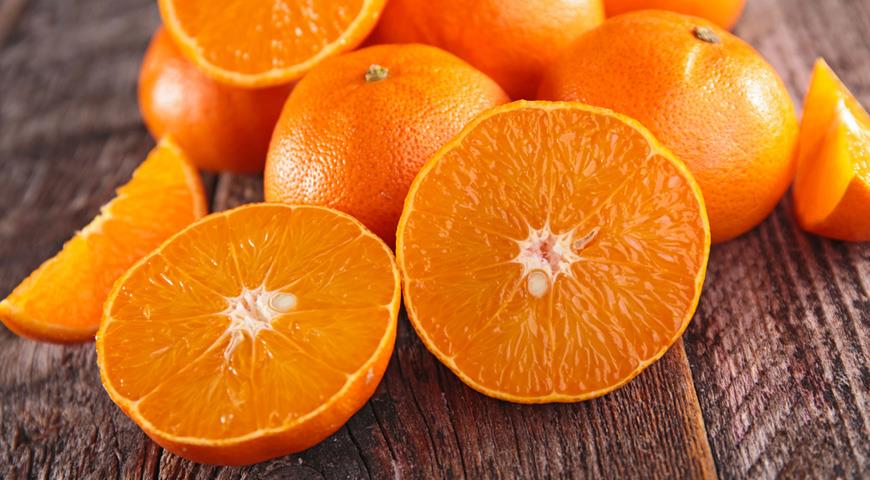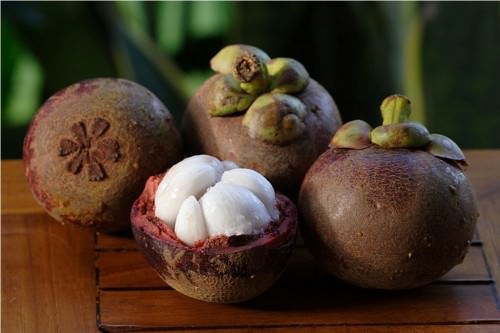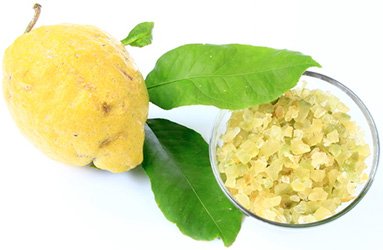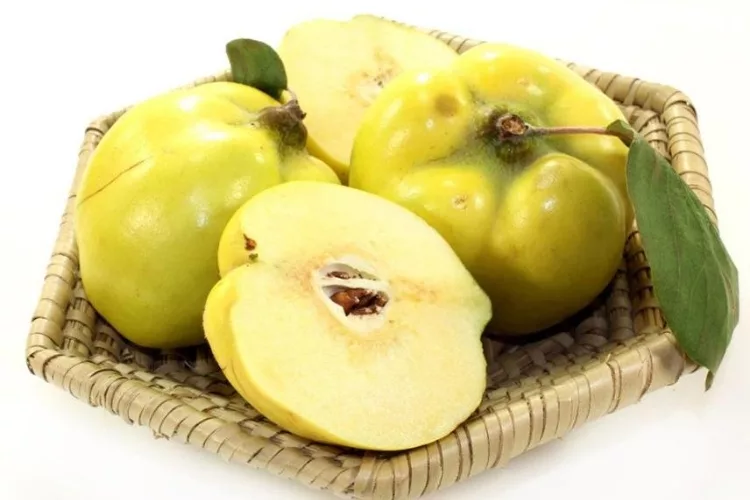14 Spectacular Facts About Nectarine
by Editorial Staff
There are many exotic fruits in the world, however, due to its wide distribution, nectarine can hardly be called such. If earlier it was known only in China, now it is being cultivated even in Cyprus.
- Bestseller No. 1
Contents
Facts About Nectarine

- The name of the fruit comes from the drink that the ancient Greek gods drank. Another name for the fruit is the bare peach.
- Outwardly, it practically does not differ from peach, except that it is colored in orange, yellow, and red. The Chinese consider such a fruit uncomplicated and often eat it, but nectarine contains many useful substances.
- As we have already noted, the fruit is colored in 3 colors, but sometimes there are only 2 combinations, as a rule, orange and yellow or red and yellow. Sometimes nectarine is called the "fruit of the heart" due to its characteristic shape. The peel of the fruit is thin, inside there is a rather large stone.
- The main feature of the composition of the nectarine is a large number of antioxidants, which contributes to longevity. The naked peach is recommended for food to everyone who cares about metabolism, and thanks to pectin, a positive effect on intestinal motility is provided. The fruit is considered an excellent antiseptic, which makes it useful for treating infections.
- The beneficial properties of nectarine are not limited to medical purposes only. It has found its application in dietetics, as it is easily digestible and reduces appetite. At the same time, the pulp of the fruit is great for making masks that sip the skin.
- Oil is squeezed out of nectarine seeds, which are later used in creams and during aromatherapy. Nectarine is recommended for the treatment of atherosclerosis, as it promotes the excretion of sodium.
- The fruit is indicated for hypertensive patients, as well as those suffering from ulcers or gastritis. Just one fruit a day serves as a good prevention of arrhythmia and constipation. Interestingly, it is the nectarine seed shells that go into the production of activated carbon.
- Nectarines can be consumed in almost any form. Even dried and baked fruits retain their beneficial properties, but fresh fruit is the best option.
- Nectarines can be added to yogurts, consumed with meat, added to baked goods, or chilled desserts. Fruit juice is easy to make as it contains a lot of moisture. They go well with berries and other fruit fruits, and also go well with meat, contributing to its rapid absorption.
- When choosing, pay attention to bright yellow fruits with red filling on the sides. If the color is pink, then the fruit is not yet ripe. The dark color should be alarming - this is a clear signal of the use of nitrates, harmful to the body.
- Do not leave fruit at room temperature. In such conditions, the release of ethylene begins, which spoils the fruits, including neighboring ones. If you have purchased unripe nectarines, then they can just be left to ripen in room conditions.
- The best storage option is a refrigerator. For them, there is a "Fresh" zone. Just wrap each fruit with paper and sort it regularly.
- Freezing is allowed for nectarines. The recommended temperature is minus 18 degrees. A food container is suitable as a container, in which you can pour more sugar. If you are going to place uncut fruits together with seeds, it is better to put them on a cutting board, place them in the freezer for 1 hour, and then put them in a bag, having previously evacuated the air, then put the fruits in the freezer again. In this form, they can be stored for six months.
- Due to a large number of varieties, nectarine cultivation is possible in almost any region of the planet. In France, until recently, nectarine and peach were considered the same fruit, although in many English-language reference books, since the beginning of the 17th century, they were considered completely different.
 Also Like
Also Like

Clementines are a hybrid of an orange and a mandarin, and this variety was bred by the French priest and breeder Father Clement, after whom the exotic fruit got its name. Externally, clementines are similar to tangerines with one difference – there are pr...

10 Interesting Facts About Arugulas
Indau, eruka, rocket, sowing caterpillar – this plant has many names, but whatever you call it less useful for health, it does not become from this. Arugula has a pleasantly bitter flavor that can add a spicy taste to any dish. Many who have tried it once...

10 Interesting Facts About Asparagus
All over the world, spring is considered the season of asparagus, when the first young juicy shoots appear from the ground. In our country, you don’t even have to look for local asparagus in the markets – you need to grow it (and it doesn’t grow in one ye...

10 Interesting Facts About Broccoli
There is more vitamin C in broccoli cabbage than in lemon, A – almost as much as in carrots, and the rest of the trace elements are certainly not less than in related vegetables of the cabbage family. It should be treated with caution by those who have in...

10 Interesting Facts About Cauliflowers
Cauliflower is superior to all other varieties in taste and nutritional content. What do you know about Cauliflowers? We will tell you 10 interesting facts about him, and if you have something to add, be sure to leave your comment under this post! Caulifl...

10 Interesting Facts About Dills
Many people actively use dill when preparing a wide variety of dishes; this seasoning is considered truly universal. What do you know about Dills? We will tell you 10 interesting facts about him, and if you have something to add, be sure to leave your com...

10 Interesting Facts About Fennels
Not the most frequent guest in our kitchens, but his every appearance should be noted. What do you know about Fennels? We will tell you 10 interesting facts about him, and if you have something to add, be sure to leave your comment under this post! The ho...

10 Interesting Facts About Garlic
Many doctors recommend eating garlic, in the absence of contraindications, of course. This is an extremely useful product, notable for the fact that when cooked or dried, it retains a significant proportion of useful substances. What do you know about Gar...

10 Interesting Facts About Greens
We know vegetables and greens are good for you. But what exactly is their strength and why are they so important in the daily diet? After examining the opinions of people leading a healthy lifestyle, we are a selection of 10 interesting facts. What do you...

10 Interesting Facts About Lettuce
Lettuce is known all over the world and has been actively used since the 20th century. People can grow lettuce on their own to consume its leaves or stump. It should be noted that lettuce varieties such as Roman are produced mainly in Europe (in the Medit...

10 Interesting Facts About Parsley
Even the usual seasoning can harbor a lot of unusual things. What do you know about Parsley? We will tell you 10 interesting facts about him, and if you have something to add, be sure to leave your comment under this post! Did you know that there are curl...

10 Interesting Facts About Pumpkins
Orange, juicy, bright, tasty, useful! Pumpkin is a real symbol of autumn. And what do you know about pumpkins? We will tell you 10 interesting facts about pumpkins, and if you have something to add, be sure to leave a comment under this post! In fact, the...

12 Interesting Facts About Daikon
Due to the high content of vitamins, daikon strengthens the immune system, and its phytoncides kill microbes. Daikon removes excess fluid from the body, cleanses the liver and kidneys, stimulates the stomach and intestines, and is even able to dissolve ga...

12 Interesting Facts About Mangosteen
We have already written about dragon fruit – one of the most popular fruits in Southeast Asia, especially in Thailand. We decided to continue the series of notes dedicated to fruits, which can be seen in abundance on Thai food stalls. The turn of mangoste...

12 Interesting Facts About Mustard
Mustard is an annual plant that grows up to 60 cm in height. The bright yellow flowers form seed pods, each containing about 6 seeds. What do you know about Mustard? We will tell you 12 interesting facts about him, and if you have something to add, be sur...

Citron is a rare fruit that belongs to the citrus family. At the moment, it grows only in some rather limited areas. Theophrastus, Virgil, Martial also spoke about this fruit, it is also mentioned in the Bible. The history of the origin of this citrus tre...

Guava is an evergreen plant of the Myrtle family, which includes about 100 species. This plant is native to the tropics of South America, but today it is grown in other parts of the world. The guava fruit is widely used for making desserts. Guava fruits a...

13 Interesting Facts About Beans
Many dishes contain beans, and in some countries, they are an integral part of the national cuisine, for example, in Mexico. What do you know about Beans? We will tell you 13 interesting facts about him, and if you have something to add, be sure to leave ...

14 Fascinating Facts About Chaenomeles
Japanese quince, or Japanese Chaenomeles, is a representative of the Plum subfamily, the Pink family, of the order Rosaceae. Japanese quince is small in height (grows from 1.5 to 4 m) with falling leaves (rarely semi-evergreen) bush or low tree, which is ...

14 Interesting Facts About Basil
Basil is considered an Indian spice and is used as a condiment in many cuisines around the world. What do you know about basil? We will tell you 14 interesting facts about him, and if you have something to add, be sure to leave your comment under this pos...
Comments for "14 Spectacular Facts About Nectarine"
 |
 |
 |
 |
Get FREE Recipe Gifts now. Or latest free cooktops from our best collections.
Disable Ad block to get all the secrets. Once done, hit any button below
 |
 |
 |
 |
